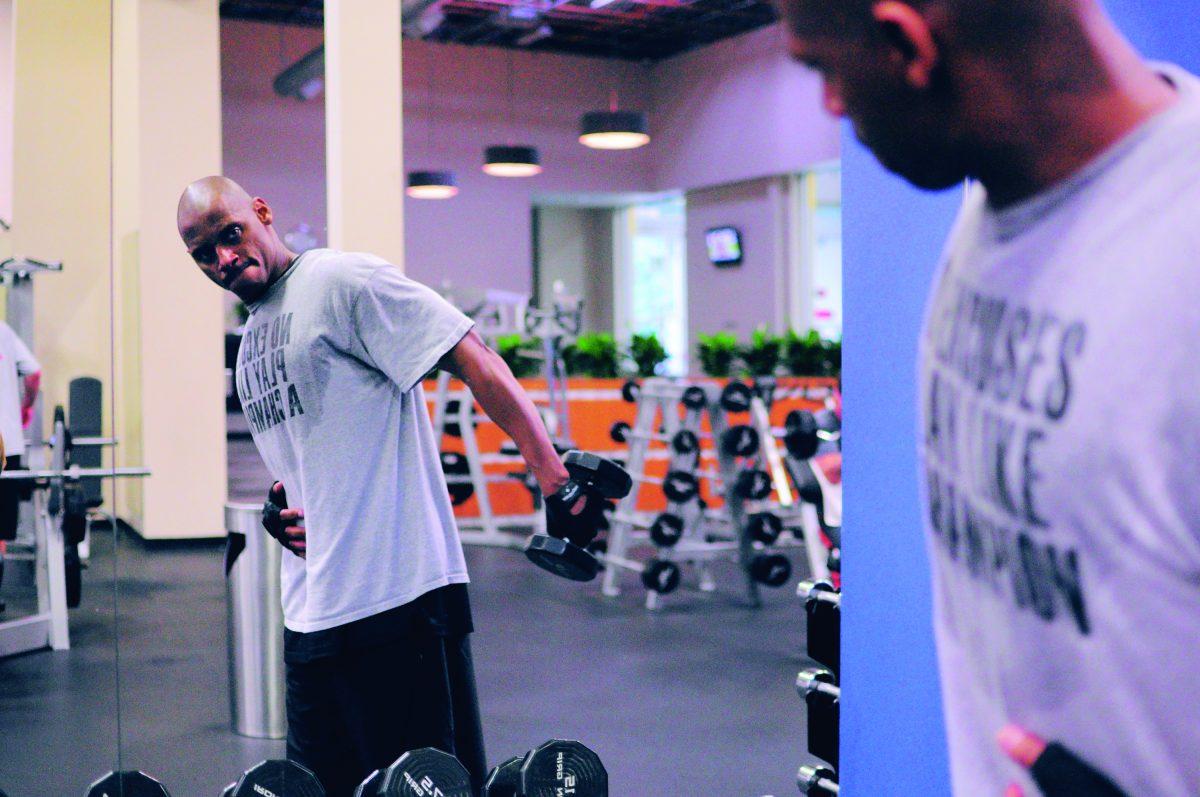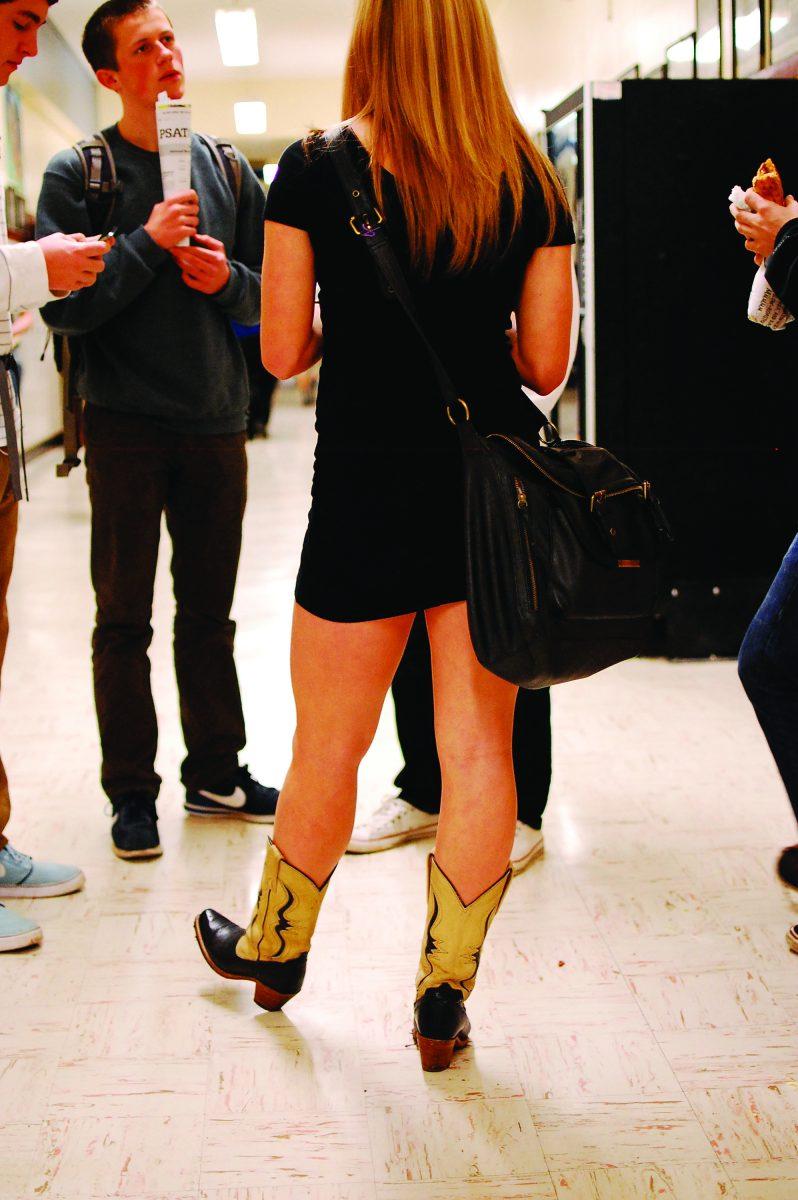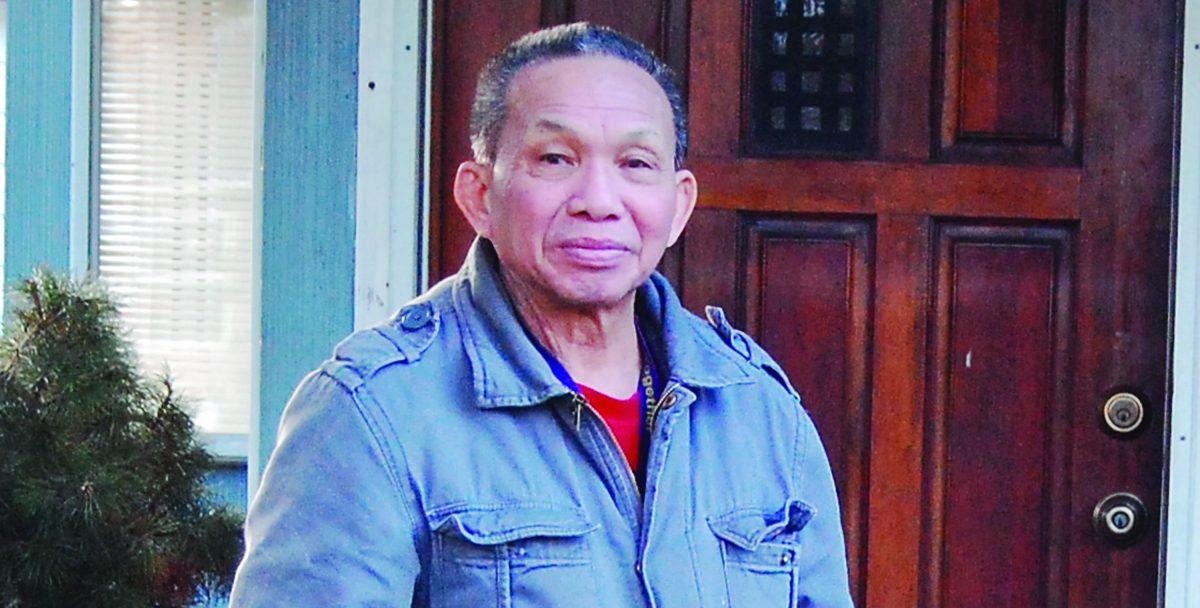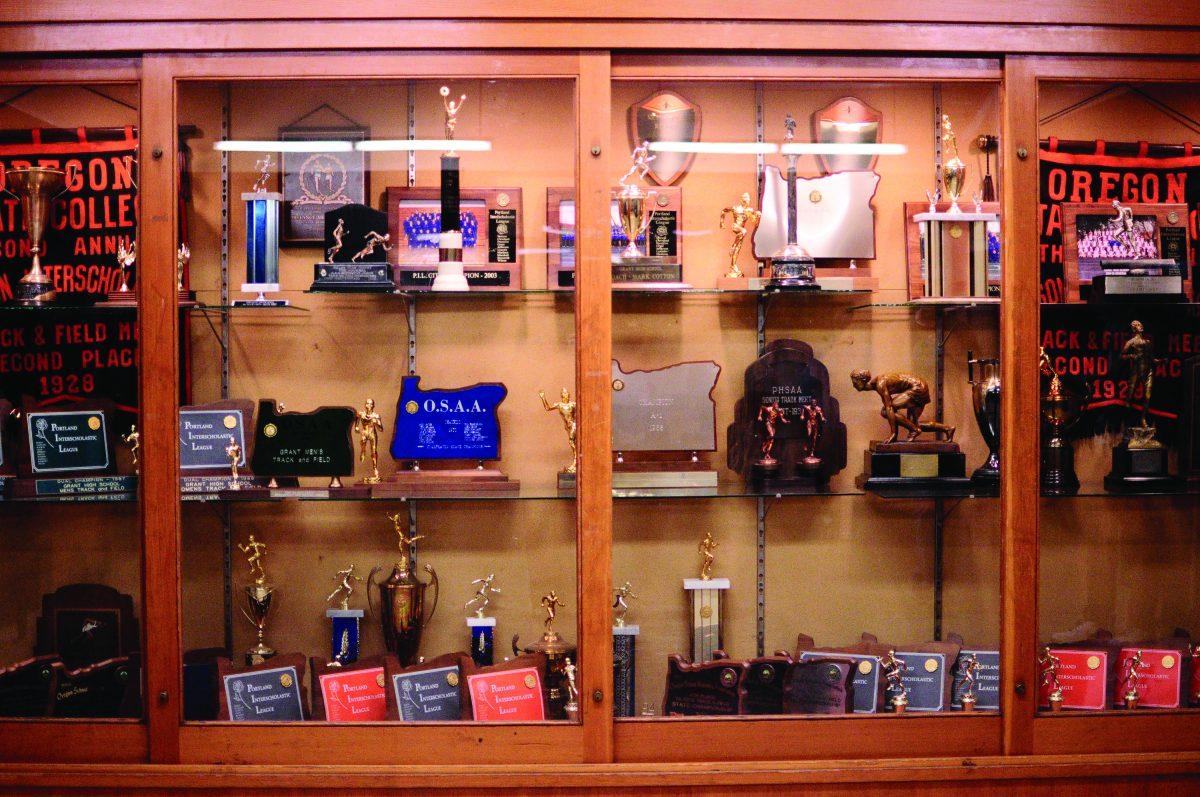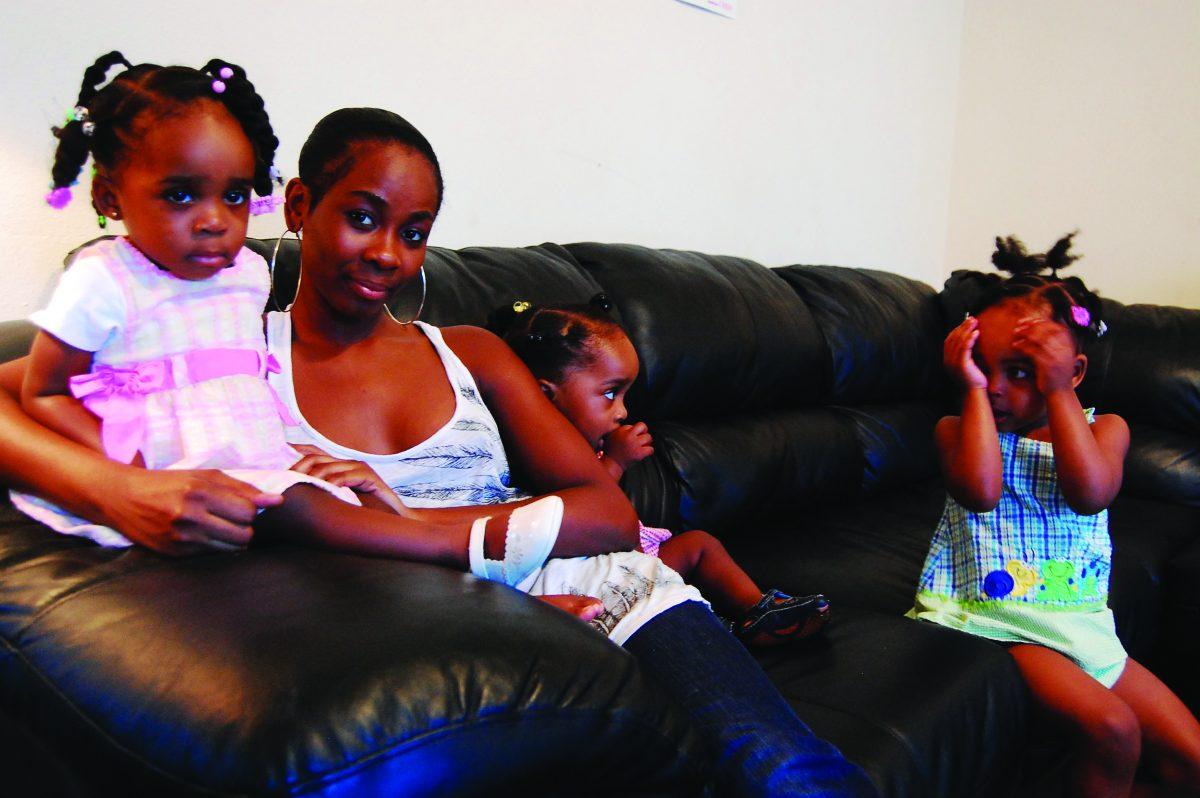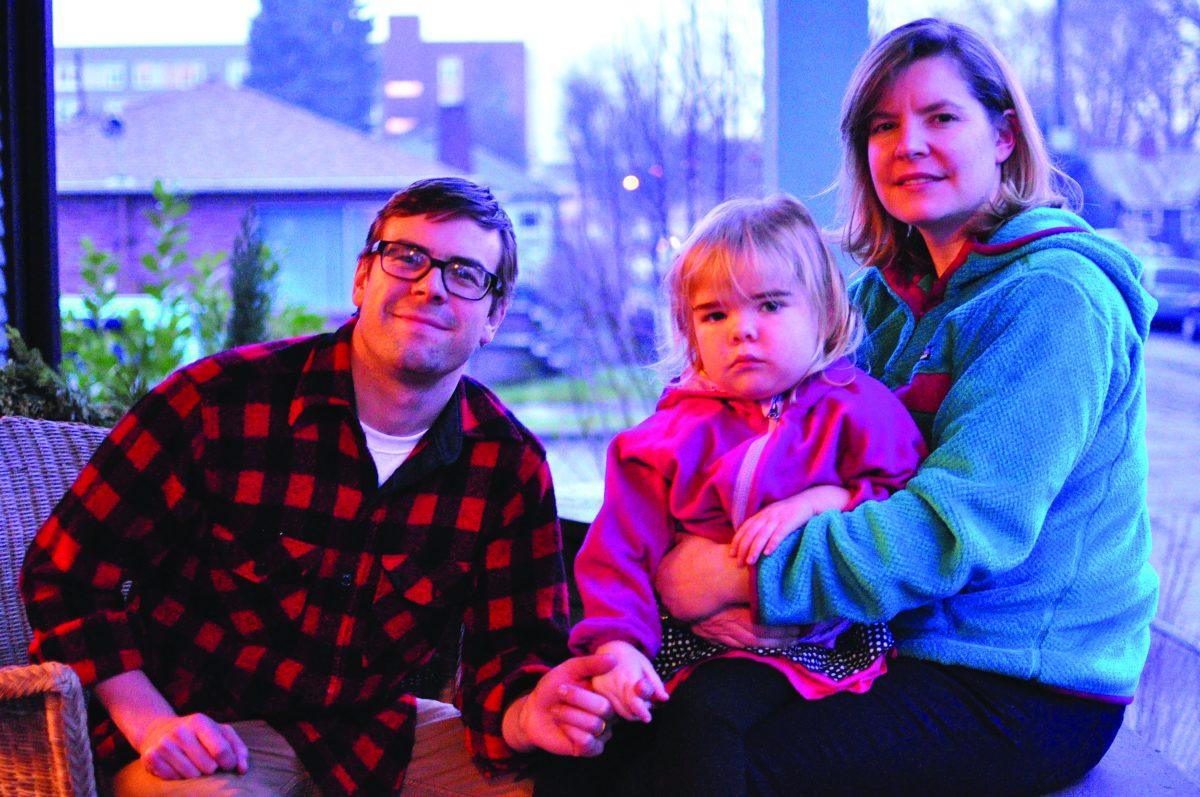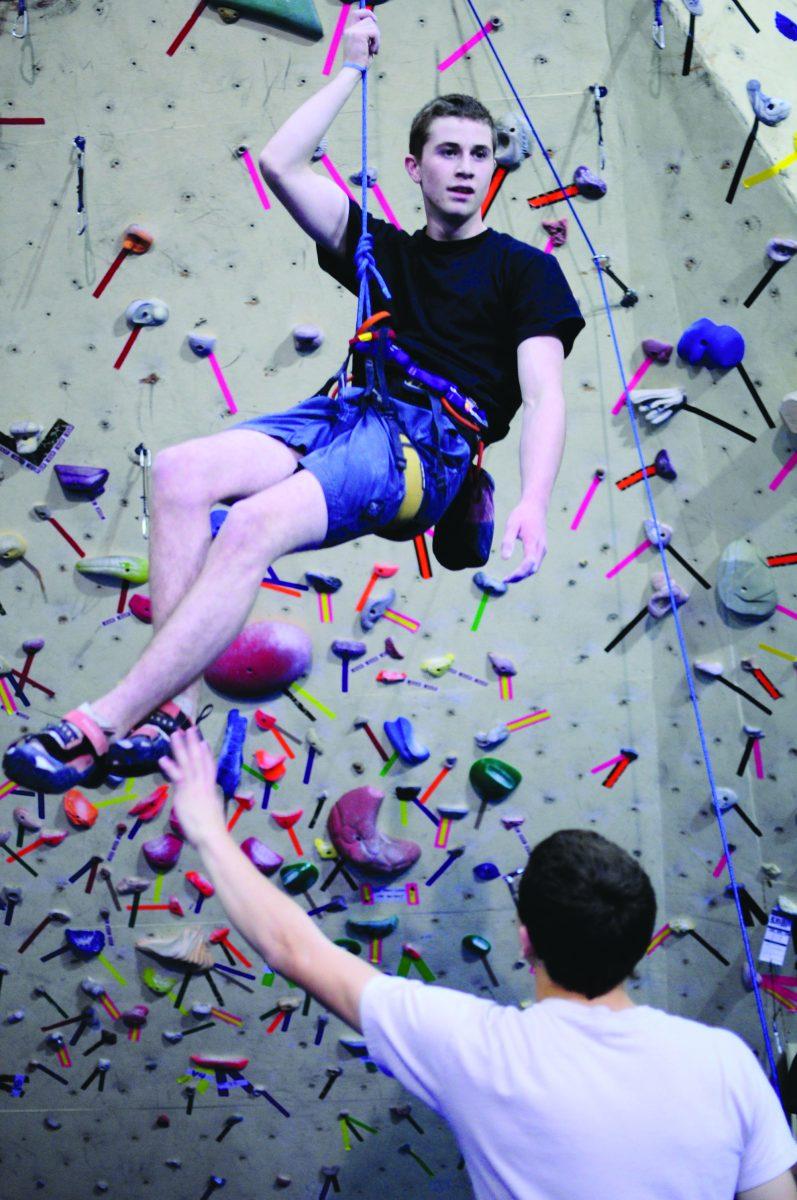Vice Principal Curtis Wilson Jr. still remembers the night before he and his family finally got out of Compton, California. Late one night, as he, his siblings and his mother returned home from a night out, someone had broken into their house.
Everything was gone and Wilson was horrified. His mother was fed up with all the crime and danger. The next morning, they were on a plane to Portland with nothing but the clothes on their backs.
Wilson, 44, has lived a successful life that he was never supposed to have. Because of his upbringing, he developed a modest outlook along with a level of extreme confidence. Growing up in a tumultuous home taught him to accept what was thrown at him and figure out how to get through it.
He was born on Dec. 31, 1967, in Los Angeles. His mother, Rose Abron, was 17 years old when she had him. When Wilson was five, his father, Curtis Wilson Sr., walked out. Growing up, Wilson moved back and forth between Compton and Watts as his mother struggled to make ends meet. The violence around them made it difficult to make friends and keep up in school.
By the time Abron was in her early 20s, she already had four children and parenting was hard. “She was still trying to figure how to raise kids and be a kid,” says Wilson, who was the oldest of seven.
Being the oldest meant Wilson had to grow up quickly and shoulder much of the child-rearing responsibilities.
He was 10 when they got to Portland, and by the time Wilson was 11, he was forced into the role of man of the house while his mother worked. The family lived with an aunt and uncle, packed into a two-bedroom house. After a year, they moved into the Columbia Villa housing project.
At the time, there was almost no violence and there were not yet gangs in North and Northeast Portland. To Wilson, life was a lot better than what he’d known. “The level of violence wasn’t as intense as it was in L.A. and Compton and Watts,” Wilson says.
“I thought it was awesome,” he says now. “People weren’t driving by trying to shoot at us and kill us, and there were no drugs in our neighborhood.”
School was a confusing situation in Wilson’s household. The family couldn’t afford to pay for daycare while Abron worked her multiple jobs, so Wilson and the other older siblings would have to take turns staying home to take care of the younger ones. “When I was in sixth or seventh grade, I started deciding who would stay home and who would go to school” depending on the day. There was no other solution.
For his part, Wilson didn’t always make it to school, either. But he knew it was important since school gave the kids two meals a day and got them out of the house. “I knew school was important because it provided us with stability,” he says.
While other kids cheered with joy for summer to come, Wilson was always nervous. His mother sent the kids outside at the beginning of the day and said: “figure things out.” “I didn’t really look forward to summer ’cause it was like: ‘Oh crap, summer’s here. Now what am I gonna do today? How are we gonna eat?’” Wilson says now. “For me, it was like survival mode.”
When he got to high school, he went to Roosevelt where he found an outlet in sports. “It was the cliché that everybody talks about,” says Wilson, who had never played team sports before because of his responsibilities. “I mean I love sports.”
He decided to try out for the basketball team his freshman year. The coach said, ‘You’re tall, you’re on the team,’” Wilson recalls, but “I couldn’t play a lick.”
He rode the bench that first season, but the next year he began to come into his own on the court as he practiced hard and worked on his game. Soon, his physical attributes had some skills to go with them. “I was dunking like crazy,” he says now. “I didn’t know what dunking was, but I was doing it.”
After the basketball season was over, Wilson caught the eye of the track coach Dan Malone. “I saw him playing basketball at lunch one day and I knew he was a natural athlete,” Malone says. Wilson proved Malone right by making it to the state championships his first season.
By the time he was a senior, Wilson averaged 20 points and 10 rebounds a basketball game, earning All-City honors, and he was a star on the track team in the 200- and 400-meter runs.
At the beginning of Wilson’s senior year, school counselor Wayne Lindquist stopped him in the hallway and asked him what he was going to do after graduation.
Young Wilson told him he was joining the U.S. Army. He already had the posters hanging in his room and had his departure dates set. Four years in the military would enable him to go to college, he said. Lindquist asked him: “What if I can get you into college?”
They met in Lindquist’s office and rearranged Wilson’s academic schedule, focusing on classes that would move him toward graduation and college. “I decided to focus on school so that way it would open doors for me,” Wilson recalls. “I wanted to be the first one in my family to graduate high school.”
Wilson visited the University of Oregon campus and he fell in love with it. And when the track coaches there checked his times, they told him he would be able to walk on in track. Wilson graduated from Roosevelt in 1986 and attended the University of Oregon the next fall.He majored in health education because he always knew that he wanted to be a teacher.
On campus, he tried out for the U of O basketball team. He didn’t believe he’d make it, but he thought he could have fun with it. He made the team.
It wasn’t easy. Playing at the college level was like starting all over for him. He left Roosevelt as a 6-foot-4” center and joined Oregon as a guard. He had to learn how to dribble, shoot and defend quicker and more skilled players. It was grueling work, but he stuck out the season and got to go places he never would have before. He was able to visit UCLA, Stanford, USC and Cal-Berkeley.
At the end of the season, the coach offered him a full scholarship. He didn’t take it. “I knew I was OK at basketball, but I knew I was good at track,” he says.
As a freshman, Wilson redshirted and was able to train intensely for a year. When he was at Roosevelt, his best time in the 400 was 50 seconds. By the time he finished at U of O, he cut his time down to 46.1.
Since he redshirted, he finished college in five years and was able to enroll in a fifth-year teacher’s program. He graduated in 1991 and went to Portland State University to get his master’s in teaching.
In Wilson’s first summer after teaching, he had time and money to spend on himself. Later, he went to L.A. and tracked down his father.
He knocked on his father’s door. When the man he was named after answered, he didn’t recognize his son. Wilson Jr. didn’t care. He was on a mission. “I just wanted to let you know your son has made it and your other family is doing fine in Portland,” he remembers telling his father.
Wilson Jr. turned around, walked away and never looked back. He hasn’t spoken to his father since.
It wasn’t difficult for him because by then he had met Yushonna Owens, the woman that he wanted to share his life with. Only she didn’t know that. He saw her in a small fashion show and told her how good she looked. Owens was caught off guard by the compliment and found Wilson a bit strange.
One of his best friends lived next door and he ran into Owens one evening. He invited her to come out with them and she blew him off. But Wilson wasn’t going to give up. His friends wrote her a “cheesy” love poem and slipped it through her mailbox. Although they spelled her name wrong and Wilson didn’t even write it, she agreed to go out with him.
They had a lot in common because she loved track and field. She had two tickets to the Prefontaine Classic meet in Eugene and invited him. They dated until Wilson proposed in 1994. They married a year later.
Wilson taught health classes at Harriet Tubman Middle School for five years. Then he returned to Roosevelt to teach health and coach the cross country and track teams. Teaching was his job, but he never let up his passion for running. He ran for both a Nike and a Reebok track team, competing in meets each year. In 1998, he ran in the Nike World Masters Games and won two gold medals in the 400 and 800.

After teaching for 10 years, Wilson wanted more. “I needed a new challenge,” he recalls. So he made his way into administration. After a year of being a dean at Roosevelt, he was hired as a vice principal at Grant.
Wilson works closely with Principal Vivian Orlen and Vice Principal Brian Chatard to keep kids heading in the right direction.
“He’s smart, he handles his business and he knows what he’s doing,” Chatard says. “It just makes it all the more amazing how clear headed he is. Considering all the obstacles he had to over come in order to be successful. I’m sort of in awe of him.”
Although he is in charge of discipline, Wilson doesn’t go out of his way to get people in trouble. For him, it’s how you treat people that matters. “Most people think their vice principal is some ogre that wants to expel all kids and that’s not the case,” says Wilson. “My thing is: ‘OK, there’s an issue. Let’s talk, figure things out, and now what can we do about it?’”
The Wilsons have two sons, Christopher, 13, and Andrew, 11, who share a love of sports with their father. They play football, basketball and run track, all while keeping things together in school. “They’re good kids and when they need to be disciplined, they’re disciplined,” says Curtis Wilson.
Wilson and his wife have been married for 16 years. She loves how he handles the kids at home and understands how he handles students at school. “I’m a huge fan of Curtis,” Yushonna Wilson says.
Whether it is playing sports, working out, being a father or being a vice principal, Wilson says he’ll always be up for another challenge in his life. “I was 17 and supposed to be doomed,” he says. “So that’s why I’m so proud of it.”



























